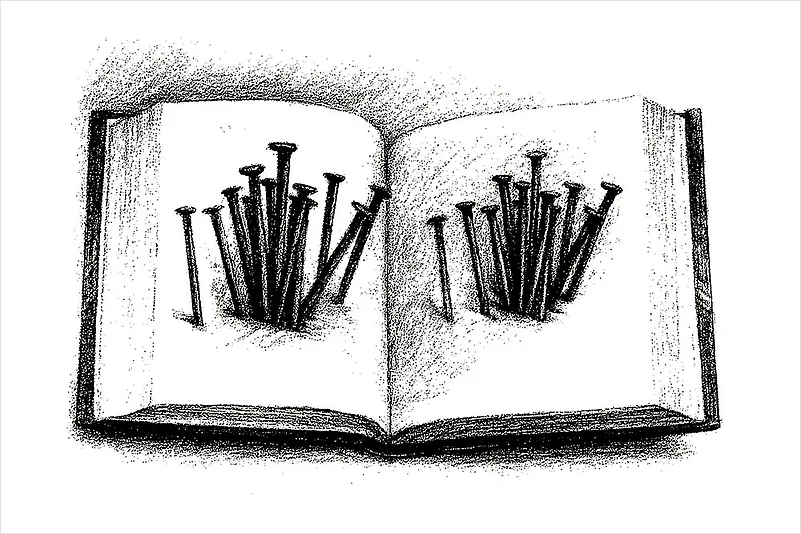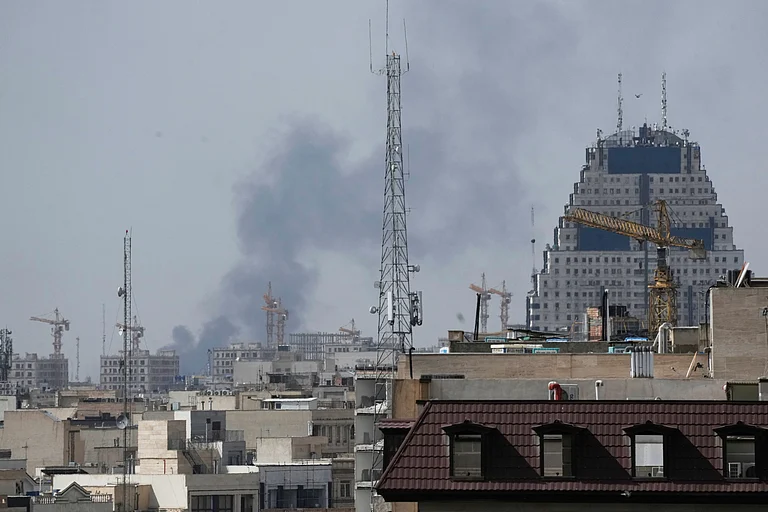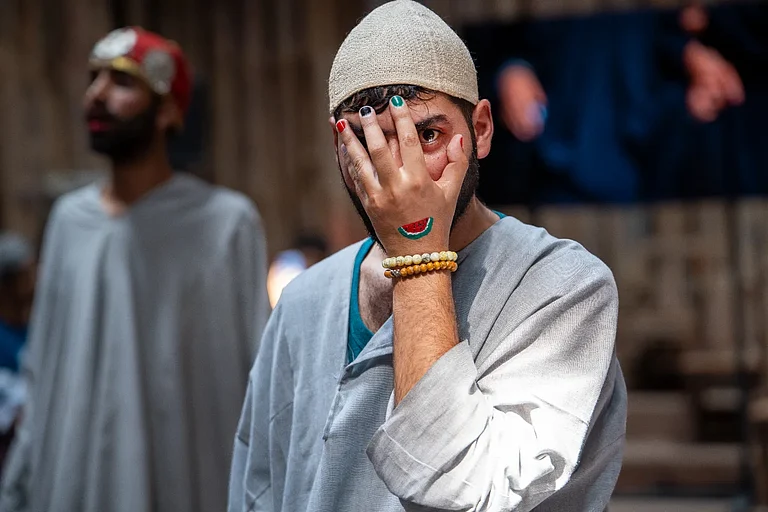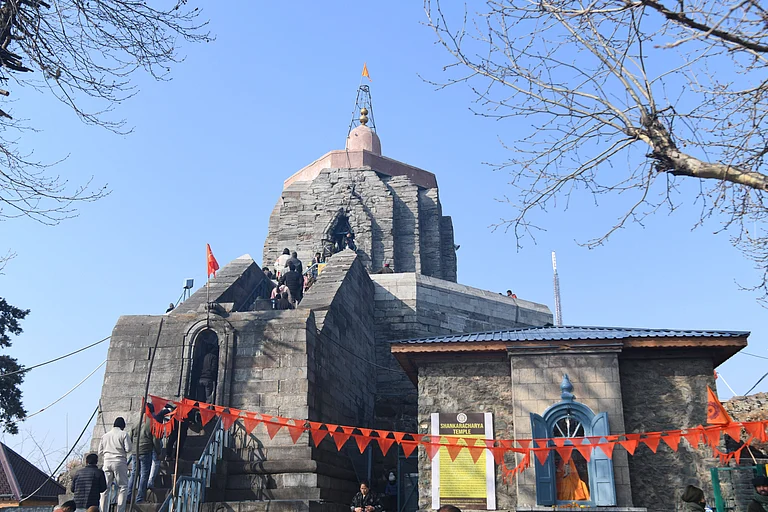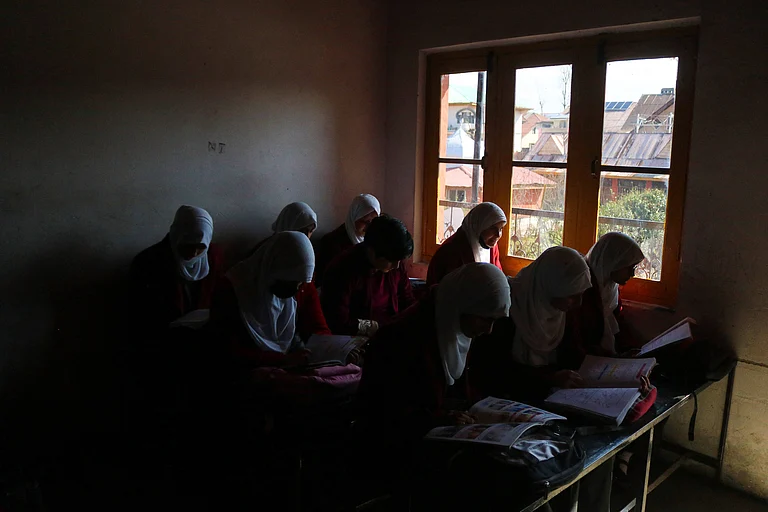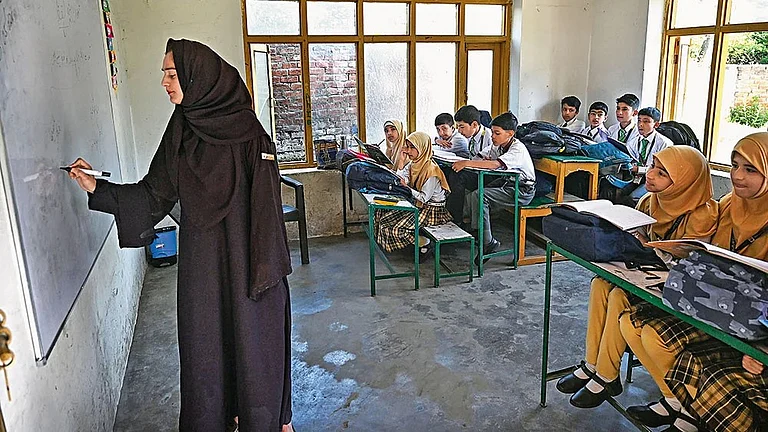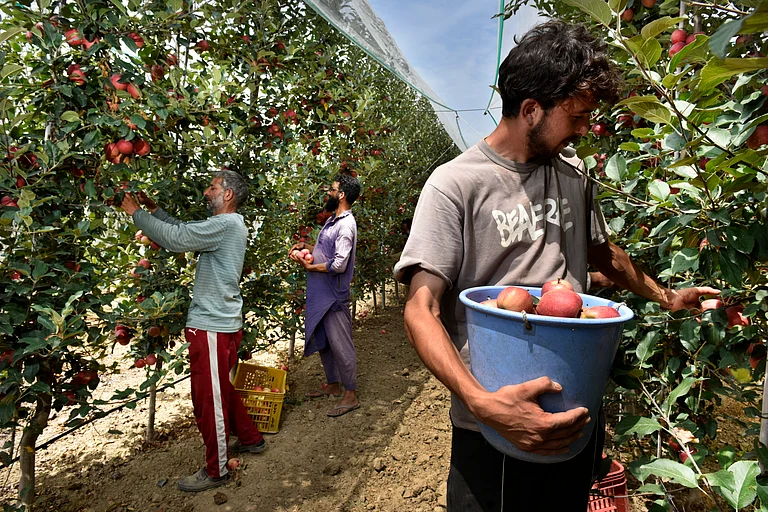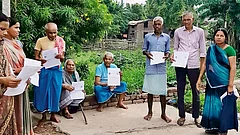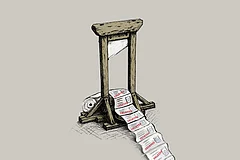
Summary of this article
Banning books shows a resistance to ideas whose flow, however, is unending.
The ideas enclosed within the pages of banned texts resurface, often taking new forms.
Kashmir has borne the brunt of book bans, far beyond the 25 recently pulled out of circulation.
India’s war on Kashmiri narrative memory is longstanding, far preceding the recent ban on 25 books that made the headlines on August 5, 2025. The selective outrage over the book ban reveals the systematic erasure embedded in the 70+ year military occupation, where persecution, extrajudicial killings, native dispossession, and land grabs steadily dismantle Kashmiri life.
The project has focused on controlling, assimilating, and ultimately erasing Kashmiri indigeneity under the guise of integrating the territory, development, and fighting Kashmiri resistance, cast as terrorism or proxy war. The war on bodies renders Kashmiris killable subjects, and the steady annihilation of Kashmiri society unfolds under the colonial logic of the forcible disappearance of Kashmiri life, land, and culture.
The weaponisation of democratic symbols is swift and terrifying in its capacity to erase bodies, language, art, archives, and the very idea of a Kashmiri future. The simmering, invisible war has rendered Kashmiri lives expendable, and their memory contraband and the intergenerational sorrow of dispossession has become a haunting legacy. The day of the ban itself saw colonial theatre in sharp relief: amidst the aisles of books of a state-sponsored Chinar literary festival stood the effigy of a BrahMos missile, symbol of India’s military prowess. The image collapses the space between literature and war, making it clear that cultural life pivots around the panopticon. It was also the sixth anniversary of the unilateral removal of Kashmir’s autonomy. The war on memory runs parallel to the war on the ground, where combatants are killed routinely away from the headlines, patrols are thick, and checkpoints and military convoys multiply like exploding stars around the PTSD-ridden population.
Not an isolated act, the ban is yet another bar in the gilded cage of Kashmir. It is not just books, but what the books carry. A chilling reminder of the machinery of erasure. In a digital age, book bans can be a non-punishment given how words travel. Yet the accompanying police actions were spectacular and the threat performative. Social media spread the fear into homes in bite-sized videos showing police raiding shops, even a stationery store, which usually doesn’t sell books. The optics of raids intensify the punishment on knowledge production and readership. Police can seize these books anywhere, even in homes or on laptops. Knowledge has become contraband.
The banned authors are an eclectic mix—academics, authors, and journalists, Kashmiris, Indians, and from the West, including Booker-winning author Arundhati Roy, as well as Muslim philosophers and thinkers like Abul A’la Maududi and Hasan al-Banna.
Different tongues and politics have been swept together into the same forbidden pile. The wide sweep hints that the ban is not a mere impediment to disseminating knowledge perceived by the state as dangerous, given that some of the books conform to the statist lens. Others use the optic of military occupation and settler colonialism, and explore everyday resistance of Kashmiri people, such as Resisting Occupation, Kashmir (The case for freedom), Colonizing Kashmir, to name a few.
My own book, amongst the banned, Resisting Disappearance: Military Occupation and Women’s Activism in Kashmir, is a political ethnography of enforced disappearances and gendered activism. The book analyses how militarisation and colonial violence coerce people’s lives, shape human rights advocacy, and criminalise resistance. It is a work of critical witnessing and testimony resulting from decades of field research with the activists of the Association of Parents of Disappeared Persons (APDP) and Jammu and Kashmir Coalition of Civil Society (JKCCS).
Today, the Kashmiri human rights firmament is facing retributive state policies. Khurram Parvez, a reputed activist, has been in prison since 2021, and the crackdown on human rights advocacy and defenders continues.
The outrage following the current book ban most likely draws from the inclusion of famous non-Kashmiri authors in India and abroad. Otherwise, there has been a steady criminalisation of Kashmiri history, memory, lived realities and truth-telling.
In 2023, the local universities sanctioned the work of Agha Shahid Ali, the famed Kashmiri American poet, and Basharat Peer, a Kashmiri journalist. Their work was categorised as resistance literature that could promote a secessionist mindset. Books by Abul Ala Maududi, founder of the political party Jamaat-e-Islami, and other local writers have been seized in police raids.
Is the list arbitrary by design, pushing the policy of bafflement to curb any kind of engagement, critical or otherwise? Is it to make it common for everyone, even those with mildly unsettling interventions, to look over their shoulder, which is a full-time job for Kashmiris?
One might suspect the list is regurgitated by an ill-informed bureaucrat or even a hasty internet listicle. The state doesn’t care about anyone’s erasure, not even those who believe in its version of truth. Here, threat is the key to suppress any kind of engagement to understand Kashmir as a dispute, or that which is not produced by the nation-state’s overly compliant hands.
Kashmiris are not new to censorship; by now, it is solidly cemented into their institutions. The local press, which valiantly braved restrictions in the past, has been reduced to mere stenography. Many journalistic archives have vanished; mentions of resistance, even phrases like Free Kashmir, are prohibited. Anyone, even if mildly critical of the state, is jailed or banished. Resistance leaders, HR activists, lawyers, and other activists and civil society members face a similar predicament. The logic of enforcing disappearance on bodies, a widespread punishment from the 90s, has steadily moved from bodies to ideas.
Education has unquestioningly become a means of brazen ideological conversion serving Indian ethno-nationalist aims. History is being recast contrary to what Kashmiris hold in their bones; systematically stripped of any mention of regional history before or after 1947. Cartographic violence shows up as deleted local maps of Kashmir. Erstwhile kings are cast nostalgically as benevolent rulers instead of despots. July 13, celebrated as Martyrs’ Day, when Kashmiris rose against the monarchy in 1931, has been replaced by the king’s birthday. Institutional pressure strips any research analysis of the Kashmir dispute, and sometimes students are forced to change their theses entirely.
The Indian state wants complete narrative control over Kashmir, not just on the ground through militarisation and surveillance, but also in the symbolic and discursive realm. Indian social media users condone cutting access to books that propagate “victim mentality,” referring to books, especially those that emerge from a critical perspective analysing the history and architecture of military occupation, political repression, and human rights violations. The state and its loyalists seek to sever Kashmiris from their histories and the world from understanding those histories. Any knowledge from journalism to research, and school curriculum to street wisdom that unsettles the statist narrative is cast as a dangerous anomaly.
But we know that books live beyond bans. In the digital age, such measures are not only moot, but also reiterate that the state continues to fear ideas. Now, more than ever, readers across the world should decide for themselves what to read and why. And ask: how can a book become a singular threat to any authority claiming legitimacy? This ban is not about a singular attack on books and authorship as much as it is about the witness that many Kashmiris offer—by resisting with their physical bodies, pens, and prayers.
(Views expressed are personal)
MORE FROM THIS ISSUE
Ather Zia is a political anthropologist, poet, short fiction writer and columnist
Democracy is about ballots, but also about memory—who safeguards both, and who seeks to rewrite them? Outlook’s September 11, 2025 issue, 'Election Omission' probes these erasures—of voters, voices, and histories—asking what they mean for India’s democratic future. This article appeared in print as 'A Dulling Of Memory'.


